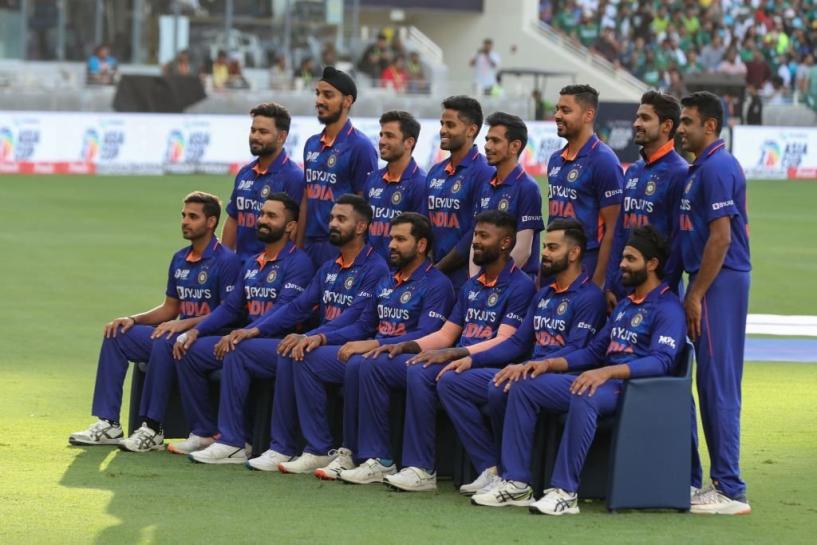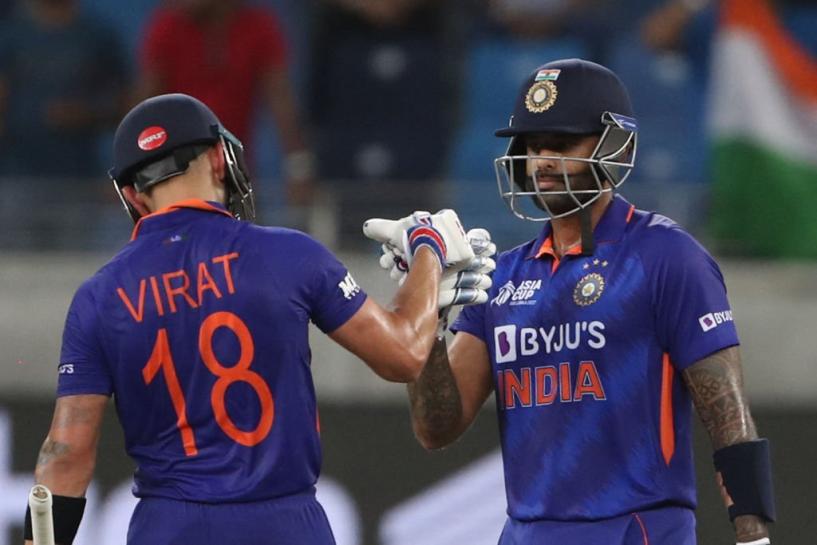Why did Pakistan have to keep five fielders in the ring for the final three overs against India?

India emerged victorious in a clash of titans in their Asia Cup opener as they pipped Pakistan to the finish line in a thriller of the first waters. It needed a match-defining knock from Hardik Pandya and a resilient showdown from Ravindra Jadeja that steered India’s ship clear of any potential danger and ushered them to an important win.
However, there was one crucial aspect of the game that left a lot of fans agape, still trying to process the fact whether the Men in Green went in ultra-attacking to thwart the flow of singles between Jadeja and Pandya or if it was something to do with the rules of the game that compelled Pakistan to have five fielders inside the circle in the final three overs of the contest.
Just to keep you apprised, the answer is the latter where Pakistan was forced to keep an extra man inside the circle. Going by the latest rule of ICC, if you have a slow over-rate in the shortest format of the game, then you will have to field with five fielders inside the circle and the number of overs will be calculated on the basis of how slow you have been.
The new rule came into being in January 2022 that stated any over that starts after the stipulated time frame of 85 minutes for a T20 innings, will have to be played with a minimum of five fielders inside the 30-yard circle. An over is said to start when the bowler is all set to bowl his first ball.
The specified figure of 85 minutes came into being after the desired over-rate was fixed at 14.11 overs per hour or 4 minutes and 15 seconds per over. In case the match is truncated to the 18th over, then the final over should be set to be bowled within 76 minutes and 30 seconds.
What happens in case of rain’s mightier interruptions? Well, the ICC rule states that if an innings loses three overs or more, then the team must be ready to bowl the penultimate over by the time the innings should have ended. In an innings that is shorter than ten overs, there is no penalty unless the team was so slow that it had already incurred the penalty at the time of the interruption.
Now another obvious question that casts itself is that since there were a few Pakistani players who were down with cramps, will there be a penalty for the same? This is something that is totally out of a fielding team’s control. ICC considered all of it and passed the verdict that there will be allowances for any kind of treatment given to the player that stops the course of action, replacing an injured player, third umpire referrals, and DRS reviews, something that the fielding side is unable to control.
Another obvious question that looms then is whether it is a bad idea to get the opposition all out because that would lead to plenty of breaks when a wicket falls, which would stretch the innings. Well, the answer is no because for every single wicket you claim, you get an additional minute for the same and if you are dismissing all the wickets, the innings is complete anyway.
The umpires inform the bowling and batting end, the time in which the innings must be completed and after every single interruption, the same drill will be followed. In case of any allowances, both the teams are again apprised of the same.
Hence, under every circumstance, Pakistan was well-informed about the situation that they were in and somehow it spiraled beyond their control to impart a slender cushion to the Men in Blue where Pandya and Jadeja could take advantage of the additional space outside the 30-man circle.
























